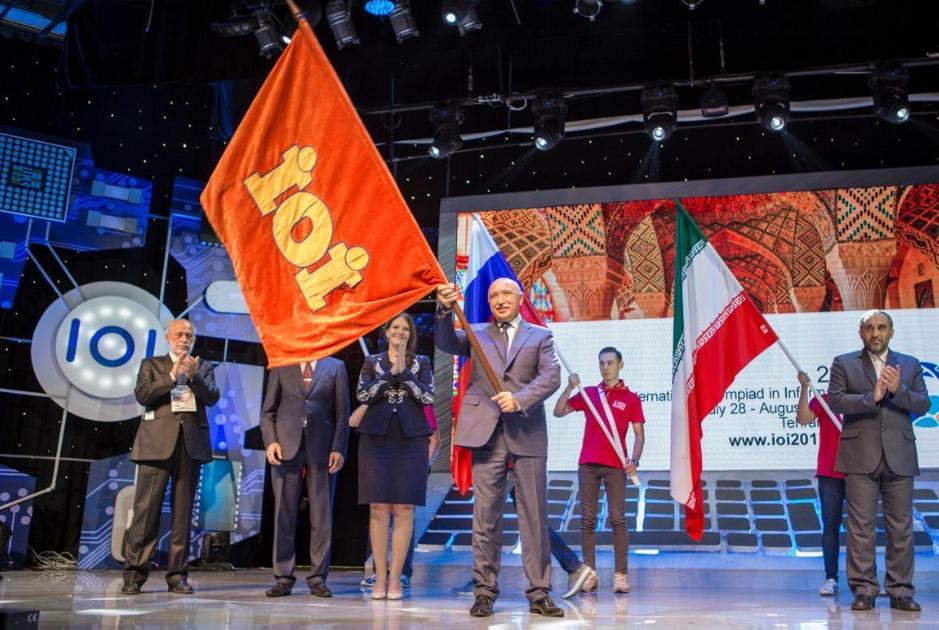Russian students took three gold at the International Olympiad in Informatics

During the last week (from 12 to 19 August) in Kazan, the International Olympiad in Informatics (IOI) and programming among schoolchildren, the Russian national team won 8 medals, including three gold, four silver and one bronze. In the overall standings, the Russian team ranked second, losing to China.
The best result was shown by Moscow schoolchildren Vladislav Makeev and Grigory Reznikov, bringing the team two gold medals.
The Russian team consisted of eight participants, four of whom were out of the competition. Information on the occupied places in the general table:
')
- Vladislav Makeev - 3;
- Mikhail Putilin - 4;
- Gregory Reznikov —15;
- Denis Solonkov - 38 (out of the test);
- Stanislav Naumov - 49;
- Alexandra Drozdova - 55 (out of the test);
- Mikhail Anoprenko - 67 (out of the test);
- Askhat Sahabiyev - 87 (out of the test).
Moscow Mayor Sergei Sobyanin has already noted that Moscow’s achievement has reached:
Muscovites Vladislav Makeev and Grigory Reznikov won 2 gold at the International Informatics Olympiad. Congratulations! pic.twitter.com/KgLsIBlrGl
- Sergey Sobyanin (@MosSobyanin) August 19, 2016
Mikhail Putilin, a student of gymnasium No. 6 “Ermine” in Novosibirsk, took the third gold medal.
One silver award belongs to Stanislav Naumov, a student of Physics and Mathematics Lyceum No. 31 in Chelyabinsk. As noted by the Ministry of Education, the Chelyabinsk Region consistently shows a high level of results, second only to Moscow and the Moscow Region, St. Petersburg and the Republic of Tatarstan.
In total, 314 schoolchildren from 81 countries of the world took part in the competition. Last year the Olympiad was held in Kazakhstan, in Almaty. The next Olympiad will be held in 2017 in Tehran, Iran.

Closing ceremony and handing over the flag to representatives of Iran, IOI 2016 .
International Olympiad in Informatics has been held since 1989. Her idea in 1987 was proposed by the Bulgarian professor Blagovest Sendov at the twenty-fourth general conference of the United Nations Educational, Scientific and Cultural Organization (UNESCO). The first IOI was held in Bulgaria.
The Olympiad takes 7 days and is held at the end of the summer. The three tasks of IOI are programs in a programming language (C, C ++, Pascal or Java), which must be completed before the end of the five-hour competition period for evaluation. Each student works individually at his own computer. The technical equipment of all the participants is the same. It takes five hours to solve algorithmic problems, communication with other participants and the use of educational / reference books is prohibited. Each task includes problem analysis, the development of algorithms and data structures, the development of the program and its testing. The remaining five days of the Olympiad are reserved for the arrival of delegations, excursions and other events.
Results table
Source: https://habr.com/ru/post/308136/
All Articles